In an agreement to develop the Arctic Sea Route, Russia and DP World
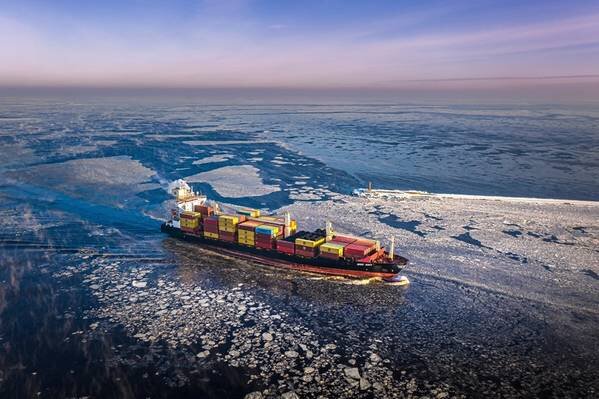
25th October 2023
Introduction
In a significant move to bolster its Arctic shipping infrastructure, Russia has struck a landmark deal with Dubai-based global logistics and port operator, DP World. The agreement aims to develop and expand the Northern Sea Route, a strategic maritime corridor through the Arctic Ocean, offering a shorter and more cost-effective path for global trade between Asia and Europe.
This partnership, forged after extensive negotiations between Russian officials and DP World executives, holds enormous potential for both nations and has far-reaching implications for international commerce, geopolitical relations, and the future of the Arctic region.
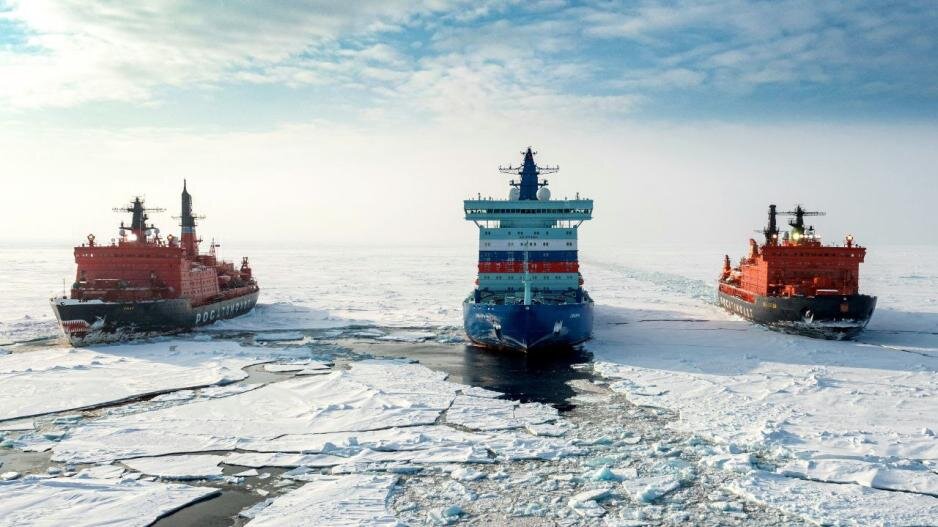
A Transformative Agreement
The agreement, signed on October 24, 2023, at the Kremlin in Moscow, outlines a comprehensive plan to modernize and expand the existing infrastructure along the Northern Sea Route. Russia’s President, Vladimir Putin, and DP World’s Chairman and CEO, Sultan Ahmed Bin Sulayem, presided over the signing ceremony, underscoring the strategic importance of this partnership.
Under the terms of the agreement, DP World will invest heavily in developing new ports, upgrading existing ones, and constructing state-of-the-art logistics facilities along the Northern Sea Route. Russia, in return, will provide DP World with exclusive rights to manage and operate these ports and facilities for an extended period.
Strategic Importance
The Northern Sea Route is a crucial Arctic waterway that connects Europe and Asia, significantly shortening the transit time for goods moving between these two continents. Due to the effects of climate change, the Arctic ice has been receding, making this route more accessible and economically viable than ever before.
The partnership between Russia and DP World aims to capitalize on these changes. By investing in the Northern Sea Route, the project aims to become a vital part of global trade routes, offering an attractive alternative to the traditional Suez Canal route. This move could potentially reshape global trade dynamics by providing a faster and more cost-effective option for shipping between Asia and Europe.
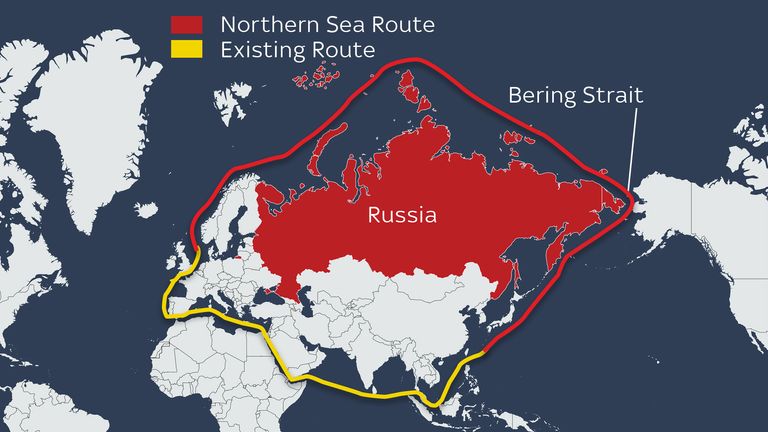
Economic and Environmental Benefits
The deal holds immense economic potential. Russia expects that the development of the Northern Sea Route will stimulate economic growth in the Arctic region, attract significant foreign investment, and create thousands of jobs. DP World, on the other hand, envisions a significant expansion of its global reach and influence.
Additionally, this initiative aligns with global environmental goals. The shorter distance and reduced transit time offered by the Northern Sea Route can lead to a decrease in greenhouse gas emissions, as ships will consume less fuel when using this route compared to the longer journey via the Suez Canal.
Geopolitical Implications
The agreement also has significant geopolitical implications. As the Arctic region becomes more accessible due to climate change, several nations, including Russia, Canada, the United States, and China, have been vying for influence and control in the area. The Russia-DP World deal gives Russia a head start in enhancing its control over Arctic trade routes.
The move is likely to raise concerns and questions about security and sovereignty in the Arctic region. Russia, as the primary operator of the Northern Sea Route, will have significant control over the transit of goods and resources through the region. This could lead to concerns among nations, particularly in the West, about Russia’s influence and potential restrictions on international shipping.
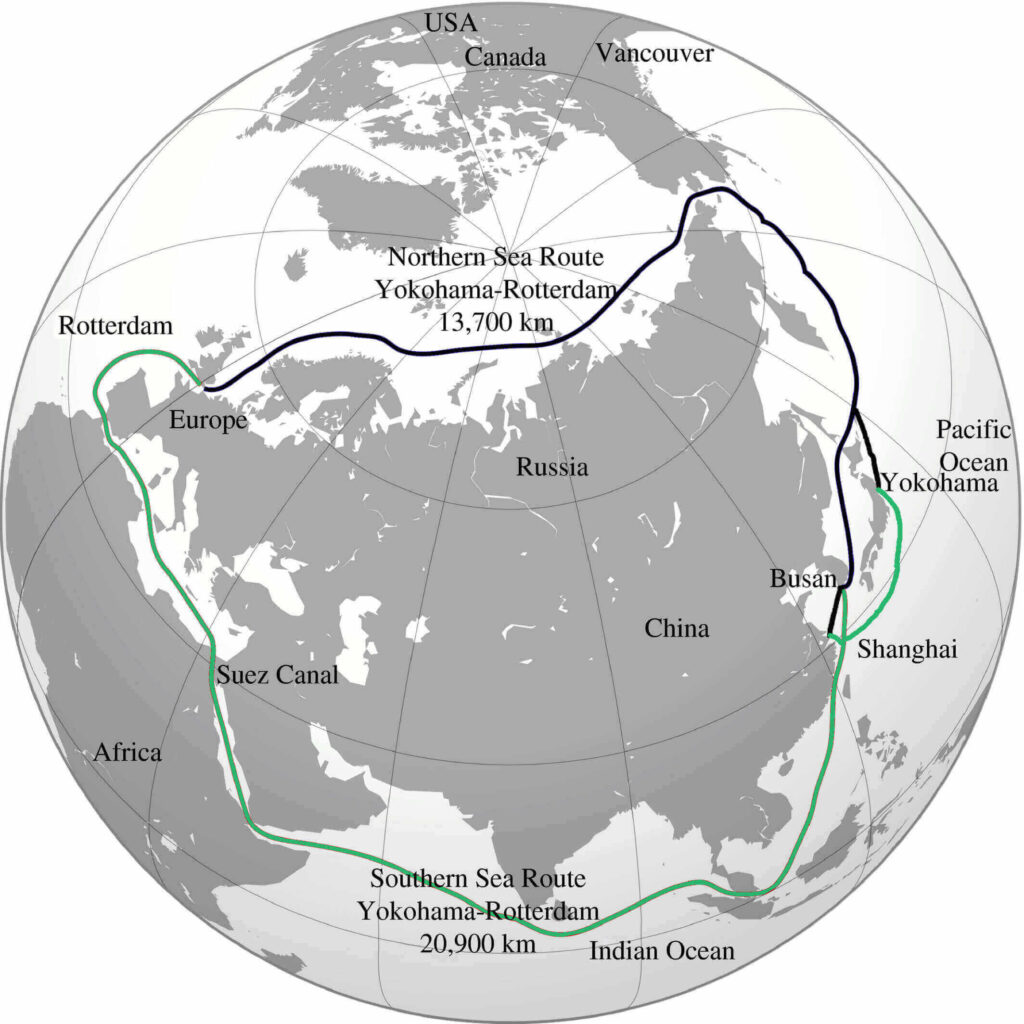
Challenges and Environmental Concerns
While the partnership holds great promise, there are also significant challenges and concerns. The Arctic ecosystem is fragile, and increased shipping in the region poses environmental risks. Oil spills, increased noise pollution, and disruptions to marine life are potential consequences. Both Russia and DP World must demonstrate a commitment to sustainable and environmentally responsible practices to address these concerns.
Another challenge is the region’s harsh climate. The Arctic poses unique challenges for shipping, including extreme cold, ice, and unpredictable weather conditions. Developing and maintaining infrastructure in this environment is expensive and logistically complex.
International Response
The international response to the Russia-DP World agreement has been mixed. Some nations view it as a positive step toward improved global trade efficiency, while others express concerns about Russia’s growing influence in the Arctic. The United States, for instance, has been critical of Russia’s increasing role in the Arctic region, and this partnership is likely to intensify those concerns.
On the other hand, China has expressed support for the agreement, as it could offer substantial benefits to its Belt and Road Initiative. China has been actively exploring Arctic trade routes, and the Northern Sea Route aligns with its global trade ambitions.
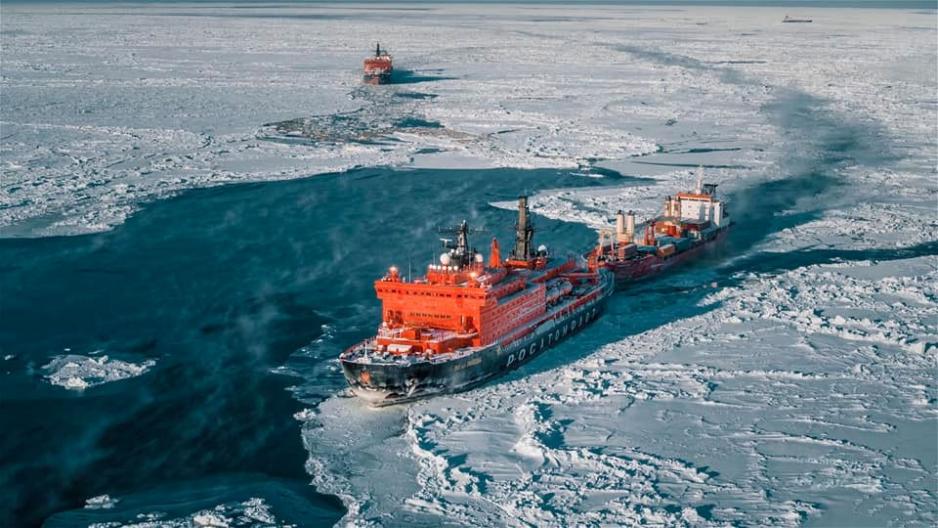
Conclusion
The Russia-DP World agreement to develop the Northern Sea Route marks a significant development in the world of global trade and geopolitics. It has the potential to alter trade dynamics between Asia and Europe, creating economic opportunities for Russia and DP World. However, it also raises concerns about environmental impacts, sovereignty in the Arctic, and Russia’s expanding influence in the region.
As this partnership moves forward, international cooperation and environmental responsibility will be crucial to ensure that the development of the Northern Sea Route benefits not only Russia and DP World but the global community as a whole. The eyes of the world will be closely watching this transformative project as it takes shape in the Arctic.
Click here to join our Telegram chanel
You will get information, news, and support related to Merchant Navy.
